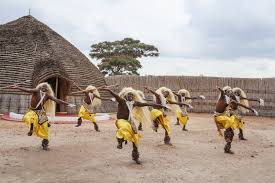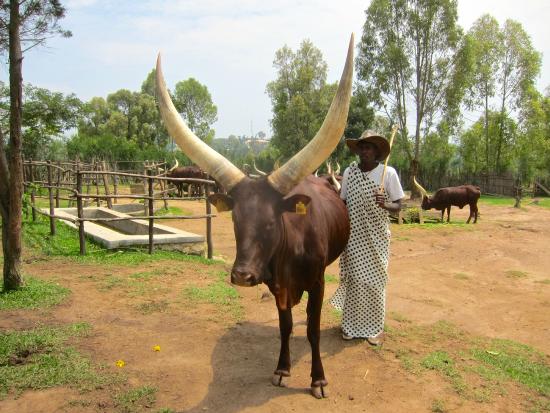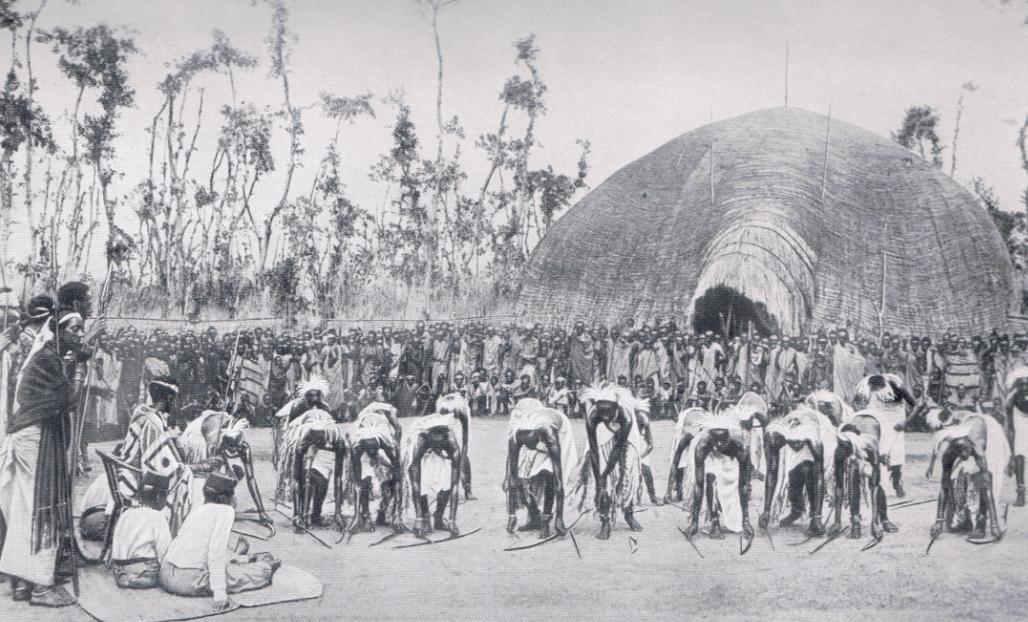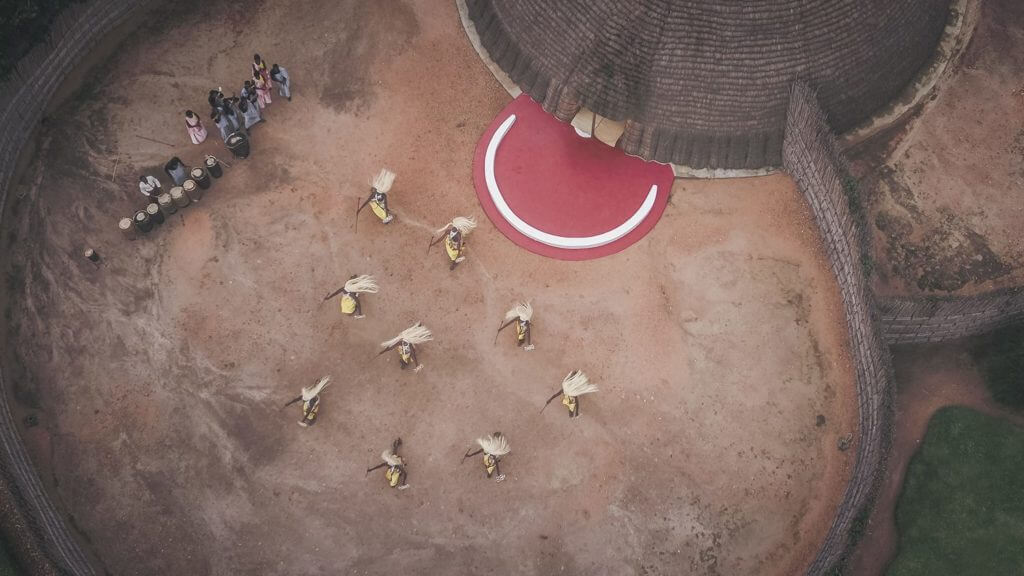 Rwanda’s Traditional Dance is an integral part of Rwandan ceremonies, social gatherings, festivals and storytelling. Celebratory dances are usually accompanied by an ‘orchestra’ of drums and nine energetic men who enthusiastically provide the beat. ‘Intore’ as it is famously known is the most famous traditional dance down here and it consists of 3 components that are highly choreographed namely; the dance of heroes which is done by men, ballet done by women and the drums. Drums have immense importance and drummers usually play in groups of seven or nine. A set of drums is usually made up of the smallest drum which is a soprano, two baritones, a tenor, an alto, two bass as well as two double bass which are the largest drums.
Rwanda’s Traditional Dance is an integral part of Rwandan ceremonies, social gatherings, festivals and storytelling. Celebratory dances are usually accompanied by an ‘orchestra’ of drums and nine energetic men who enthusiastically provide the beat. ‘Intore’ as it is famously known is the most famous traditional dance down here and it consists of 3 components that are highly choreographed namely; the dance of heroes which is done by men, ballet done by women and the drums. Drums have immense importance and drummers usually play in groups of seven or nine. A set of drums is usually made up of the smallest drum which is a soprano, two baritones, a tenor, an alto, two bass as well as two double bass which are the largest drums.
Rwanda’s Cultural Beliefs
 Recently the Long-horned Traditional cows, known in Kinyarwanda as “Inyambo” were also introduced because of the fact that cows form an integral part of Rwandan Culture. The cattle are also valued for maintenance of the Rwandan cultural heritage which includes use as dowry and gifts in marriage ceremonies and paying fines for various cultural offences. In Rwanda marriage is considered the most basic social institution and the pressure to marry and have children is quite high. Most couples today have the leverage to select their own mates unlike in the past though family approval is still expected. Christianity has become a central part of the country with over two thirds of Rwandans Christians, mainly Catholic although smaller evangelical churches are getting popular of late.
Recently the Long-horned Traditional cows, known in Kinyarwanda as “Inyambo” were also introduced because of the fact that cows form an integral part of Rwandan Culture. The cattle are also valued for maintenance of the Rwandan cultural heritage which includes use as dowry and gifts in marriage ceremonies and paying fines for various cultural offences. In Rwanda marriage is considered the most basic social institution and the pressure to marry and have children is quite high. Most couples today have the leverage to select their own mates unlike in the past though family approval is still expected. Christianity has become a central part of the country with over two thirds of Rwandans Christians, mainly Catholic although smaller evangelical churches are getting popular of late.
Rwandan Language
 Rwandan Official language is “Kinyarwanda“; the language spoken by all Rwandans as their mother tongue but almost every Rwandan speaks a little of one wider language mainly French, English and Swahili. When dealing with their main trading partners in East Africa, Rwandans make use of English and Swahili. Well educated individuals however often speak fluent French and many migrants who returned home after the genocide from Kenya, Uganda, Tanzania or the USA tend to speak English more. Rwandans are very pleased when visitors try to speak their mother tongue (Kinyarwanda). Speaking a few words like ‘amakuru’ (how are you) or ‘Muraho’ (good day) gets them excited.
Rwandan Official language is “Kinyarwanda“; the language spoken by all Rwandans as their mother tongue but almost every Rwandan speaks a little of one wider language mainly French, English and Swahili. When dealing with their main trading partners in East Africa, Rwandans make use of English and Swahili. Well educated individuals however often speak fluent French and many migrants who returned home after the genocide from Kenya, Uganda, Tanzania or the USA tend to speak English more. Rwandans are very pleased when visitors try to speak their mother tongue (Kinyarwanda). Speaking a few words like ‘amakuru’ (how are you) or ‘Muraho’ (good day) gets them excited.


